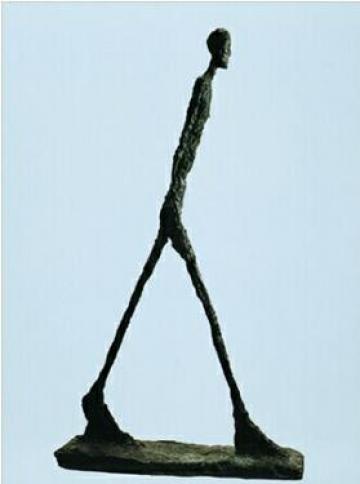Embodiment and Materiality
About

This network was funded from June 2013 to December 2015.
The Embodiment and Materiality Network brought together researchers across a wide range of disciplines to discuss topics of common interest relating to the broad themes of embodiment and materiality. The network drew together contributors from anthropology, archaeology, business, classics, geography, music, neuroscience, psychology, and zoology, and organized its activities around termly half-day seminars and an associated web presence. Members included established academics, postdocs, and research students.
Contact:
Eric Clarke
People
Events
Past Events
Embodiment and Materiality

Embodiment and Materiality Seminar – a series of 10 seminars were held between December 2013 and January 2015
Iain Morley, from the School of Anthropology, presented a wide-ranging and stimulating account of gesture, with a particular emphasis on human evolution, and the relationship between gesture and music.
Caroline Potter (School of Anthropology) gave a thought-provoking account of her ethnographic study of professional dancers, taking a phenomenological approach to learn about their perceptions of the mind-body relationship.
A talk was held, focused on the psycho-cultural aspects of peak experience in contemporary life. On the one hand, positive psychology promotes this form of experience as a pure expression of the good life in which worker and work achieve a true and productive synthesis; more critical approaches see the possibility of a less benign aspect - that the zone is little more than a fiction, a management tool to extract ever greater compliance from worker subjects in the face of increasingly difficult working conditions.
Ségolène Tarte: Cognitive Futures in the Humanities, (Oxford e-Research Centre)
A wide-ranging discussion that explored interpretation and reinterpretation in the act of "reading" ancient documents; aural processes and semantic memory as facilitators of the uncovering of words; and connections between ethnographic phenomena and cognitive literature.
Karenleigh A. Overmann (School of Archaeology)
The prehistory of number: Cognitive archaeology and Material Engagement Theory
Derek McCormack (School of Geography and the Environment) gave an account of his work on atmospheres and affective spaces using examples as broad as Dalcroze Eurhythmics, performance spaces designed by Adolphe Appia, sports radio commentating, and art installation. The talk considered questions such as the extent to which atmospheres exist in so far as they can be sensed; how atmospheres can be staged or choreographed; and the methodological issues of how to describe or report on the non-representational.
Reading group: Andy Clark (2013): 'Expecting the world: perception, prediction, and the origins of human knowledge', The Journal of Philosophy, CX/9, pp. 469-496.
Reading group: Shaun Gallagher (2014): 'In your face: transcendence in embodied interaction', Frontiers in Human Neuroscience, 8, pp 1-6.
Sean Williams (Reid School of Music, University of Edinburgh): Myth, faith and electronics
Sean Williams gave a presentation about his research, which takes a practice-led approach to examine the live and studio practices of early electronic music.
Drop-in Tapestry Workshop (February 2015)
A workshop with Jennifer Bennett. Part of the current 'Love is Enough' exhibition curated by Jeremy Deller.
Embodiment and Materiality Reading Group (February 2015)
Reading group: Michael Wheeler: 'Is Cognition Embedded or Extended? The Case of Gestures', in Zdravko Radman, ed., The hand, an organ of the mind: what the manual tells the mental (MIT Press), pp. 269-301.
Session with Jim Harris (March 2018)
Jim Harris (Andrew W Mellon Foundation Teaching Curator, Ashmolean Museum)
Ashmolean Networks: Objects, Materials and Embodied Meaning (May 2015)
A workshop led by Jim Harris (Andrew W Mellon Foundation Teaching Curator, Ashmolean Museum). At this workshop we examined a number of objects from the Ashmolean which have been used as points of departure for teaching in English, History, Neuroscience, Psychiatry, Geography, Modern Languages and other subjects, thinking about the shared ideas and enquiries they embody materially, formally and functionally.
Embodiment and Materiality Reading Group (June 2015)
Reading: Lambros Malafouris: How Things Shape the Mind: A Theory of Material Engagement (2013: MIT) Chapters 1 and 3 (available from SOLO).
Musicking and Material Affect (June 2015)
Talk Held: to consider dimensions of “material affect”: the idea that features of the environment may not only support the emergence of different kinds of affective experiences but, additionally, take over and govern certain aspects of their development, character, and functioning.
News


